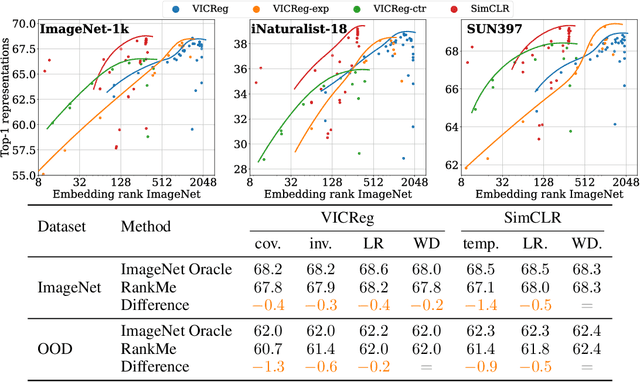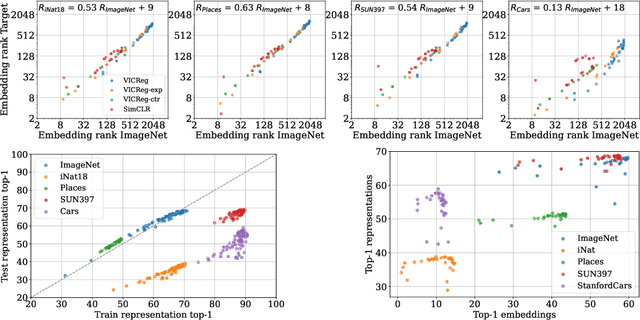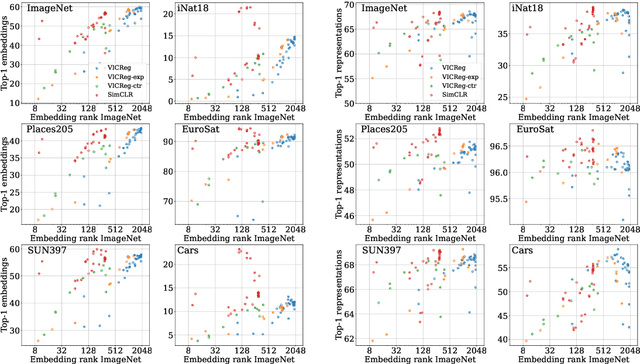RankMe: Assessing the downstream performance of pretrained self-supervised representations by their rank
Paper and Code
Oct 05, 2022



Joint-Embedding Self Supervised Learning (JE-SSL) has seen a rapid development, with the emergence of many method variations and few principled guidelines that would help practitioners to successfully deploy those methods. The main reason for that pitfall actually comes from JE-SSL's core principle of not employing any input reconstruction. Without any visual clue, it becomes extremely cryptic to judge the quality of a learned representation without having access to a labelled dataset. We hope to correct those limitations by providing a single -- theoretically motivated -- criterion that reflects the quality of learned JE-SSL representations: their effective rank. Albeit simple and computationally friendly, this method -- coined RankMe -- allows one to assess the performance of JE-SSL representations, even on different downstream datasets, without requiring any labels, training or parameters to tune. Through thorough empirical experiments involving hundreds of repeated training episodes, we demonstrate how RankMe can be used for hyperparameter selection with nearly no loss in final performance compared to the current selection method that involve dataset labels. We hope that RankMe will facilitate the use of JE-SSL in domains with little or no labeled data.
 Add to Chrome
Add to Chrome Add to Firefox
Add to Firefox Add to Edge
Add to Edge